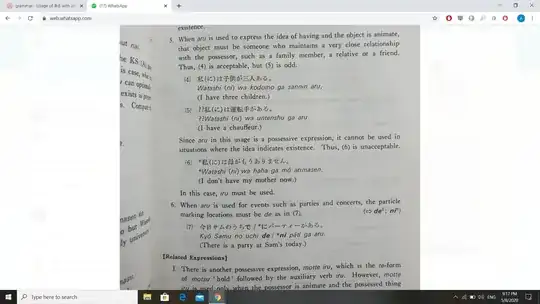I was going through some other uses of the verb ある and then, I came across the use of ある with animate object. Following are the statements of the book which I am referring to.
- If we indicate the idea of possession in context of close human relationships like family, we can still use ある. E.g. 私は子供がある - I have children. Whereas, if we use it for other human relationship it is wrong, E.g. 私は先生がある.
- However, if we indicate the idea of existence then ある cannot be used. E.g. 山田さんは母がもない - Yamada-san does not have his mother now.
As, we know if the following sentence emphasizes possession it can be used with ある, whereas, if it conveys existence it cannot be used with ある. So my question is, if I use negative form of ある (be it plain or polite), will it indicate possession or existence. Eg. 私は子供がありません- I don't have children. In this statement, as per me, it is indicating more existence (like I don't have children, rather than possession)
